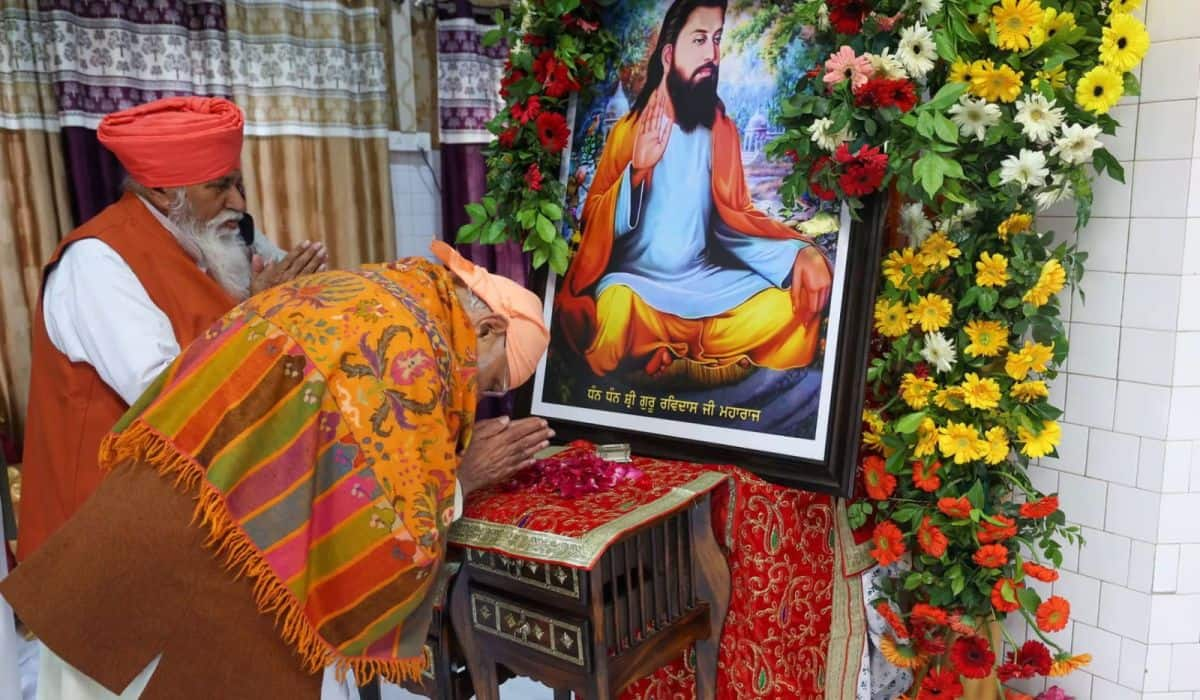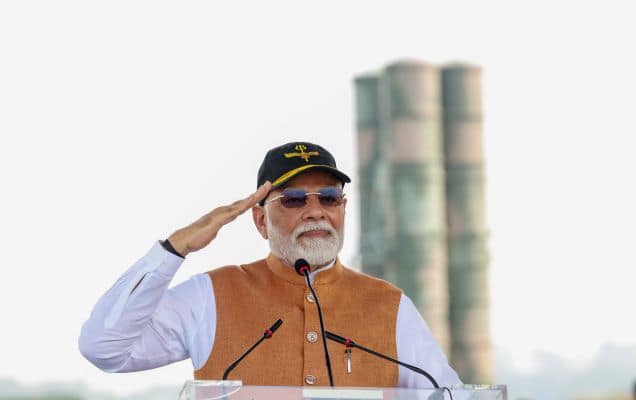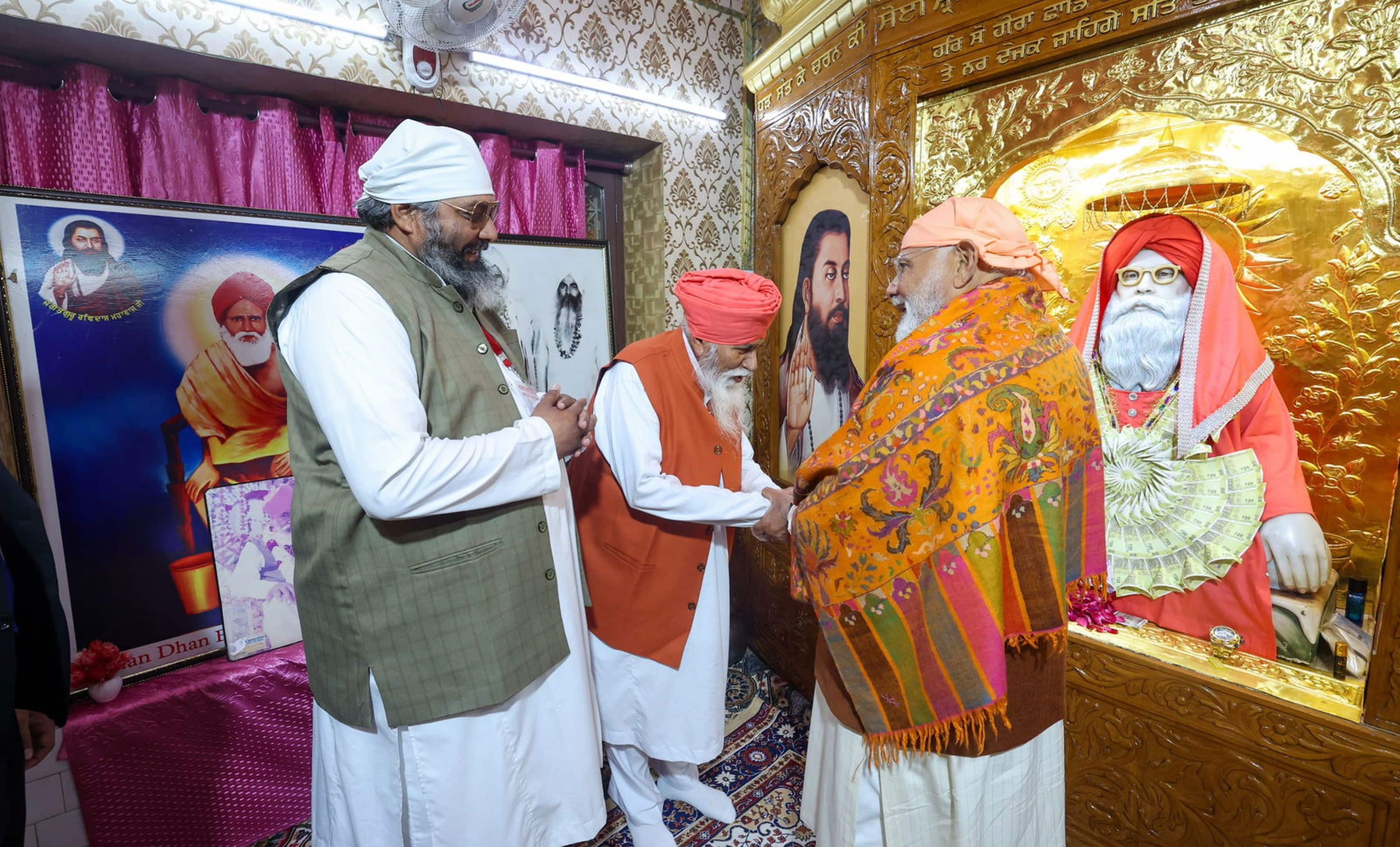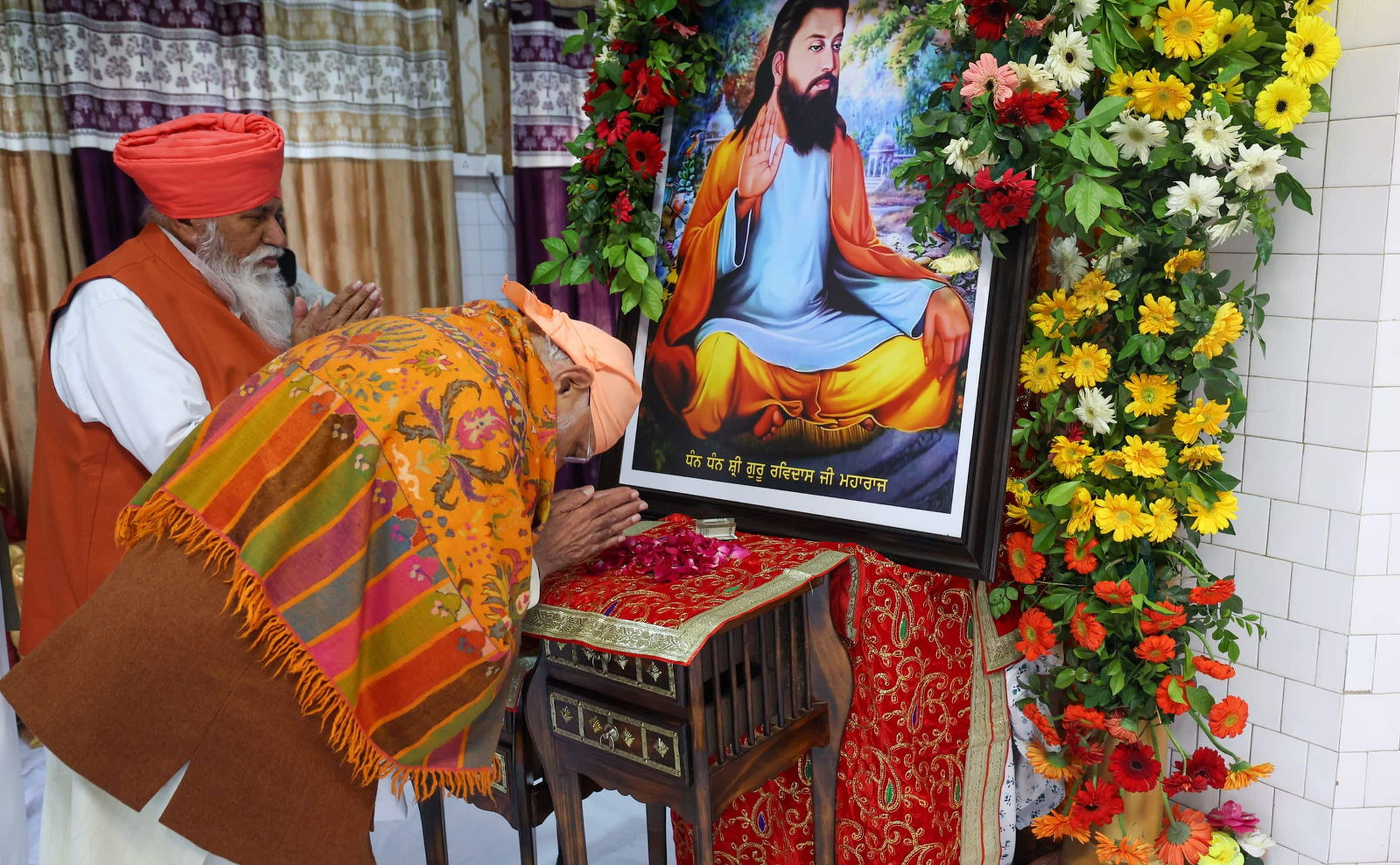The Prime Minister Shri Narendra Modi released a book on the life and ideals of Sri Guru Nanak Dev ji.
In a tweet Shri Modi said “Released a book on the life and ideals of Sri Guru Nanak Dev Ji. The book has been penned by Kirpal Singh Ji, who is based in Chandigarh.”
श्री गुरु नानक देव जी के जीवन और आदर्शों पर आधारित एक पुस्तक का विमोचन किया। इस पुस्तक को चंडीगढ़ में रहने वाले श्री कृपाल सिंह जी ने लिखा है। pic.twitter.com/xgEhVFnCs7
— Narendra Modi (@narendramodi) November 25, 2020
ਸ੍ਰੀ ਗੁਰੂ ਨਾਨਕ ਦੇਵ ਜੀ ਦੇ ਜੀਵਨ ਅਤੇ ਆਦਰਸ਼ਾਂ ‘ਤੇ ਇੱਕ ਪੁਸਤਕ ਜਾਰੀ ਕੀਤੀ। ਇਹ ਪੁਸਤਕ ਚੰਡੀਗੜ੍ਹ ਵਾਸੀ ਸ਼੍ਰੀ ਕਿਰਪਾਲ ਸਿੰਘ ਜੀ ਦੁਆਰਾ ਲਿਖੀ ਗਈ ਹੈ । pic.twitter.com/RycJ7BEvuz
— Narendra Modi (@narendramodi) November 25, 2020
Released a book on the life and ideals of Sri Guru Nanak Dev Ji. The book has been penned by Kirpal Singh Ji, who is based in Chandigarh. pic.twitter.com/6vYgeGZ1lH
— Narendra Modi (@narendramodi) November 25, 2020















